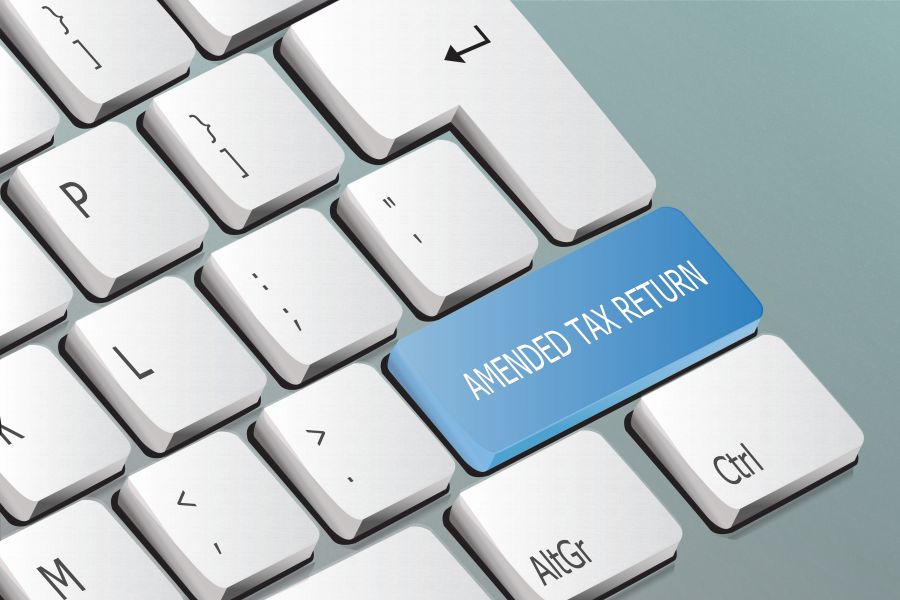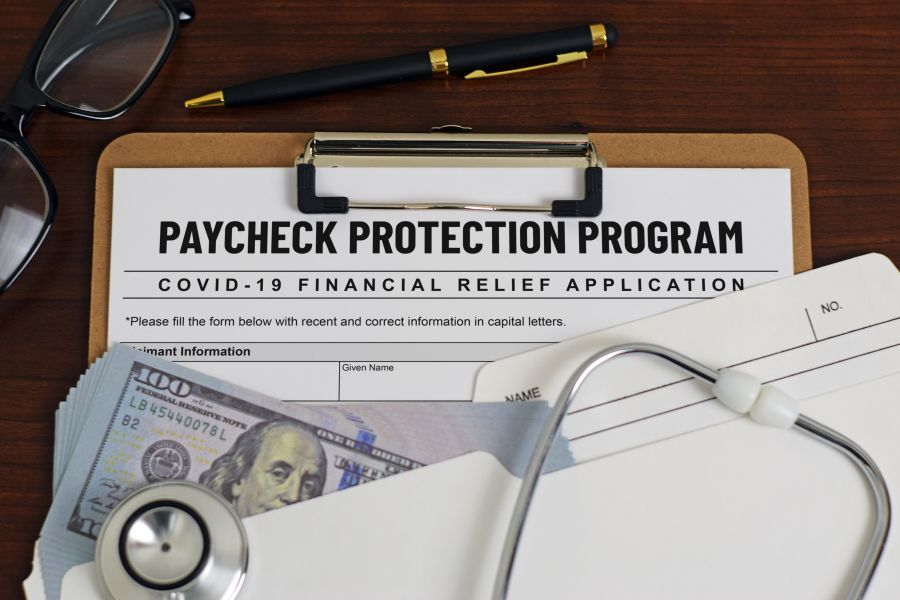The law providing relief due to the coronavirus (COVID-19) pandemic contains a beneficial change in the tax rules for many improvements to interior parts of nonresidential buildings. This is referred to as qualified improvement property (QIP). You may recall that under the Tax Cuts and Jobs Act (TCJA), any QIP placed in service after December 31, 2017 wasn’t considered to be eligible for 100% bonus depreciation. Therefore, the cost of QIP had to be deducted over a 39-year period rather than entirely in the year the QIP was placed in service. This was due to an inadvertent drafting mistake made by Congress. But the error is now fixed. The Coronavirus Aid, Relief, and Economic Security (CARES) Act was signed into law on March 27, 2020...

If you made large gifts to your children, grandchildren or other heirs last year, it’s important to determine whether you’re required to file a 2019 gift tax return. And in some cases, even if it’s not required to file one, it may be beneficial to do so anyway. Who must file? Generally, you must file a gift tax return for 2019 if, during the tax year, you made gifts: That exceeded the $15,000-per-recipient gift tax annual exclusion (other than to your U.S. citizen spouse), That you wish to split with your spouse to take advantage of your combined $30,000 annual exclusion, That exceeded the $155,000 annual exclusion for gifts to a non-citizen spouse, To a Section 529 college savings plan and wish to accelerate up to five...
If you’re the owner of an incorporated business, you probably know that there’s a tax advantage to taking money out of a C corporation as compensation rather than as dividends. The reason is simple. A corporation can deduct the salaries and bonuses that it pays executives, but not its dividend payments. Therefore, if funds are withdrawn as dividends, they’re taxed twice, once to the corporation and once to the recipient. Money paid out as compensation is taxed only once, to the employee who receives it. However, there’s a limit on how much money you can take out of the corporation this way. Under tax law, compensation can be deducted only to the extent that it’s reasonable. Any unreasonable portion isn’t deductible and, if paid to a...
If you’re a business owner, be aware that a recent tax law extended a credit for hiring individuals from one or more targeted groups. Employers can qualify for a valuable tax credit known as the Work Opportunity Tax Credit (WOTC). The WOTC was set to expire on December 31, 2019. But a new law passed late last year sees WOTC extended through 2020. Generally, an employer is eligible for the credit for qualified wages paid to qualified members of these targeted groups: members of families receiving assistance under the Temporary Assistance for Needy Families program, veterans, ex-felons, designated community residents, vocational rehabilitation referrals, summer youth employees, members of families in the Supplemental Nutritional Assistance Program, qualified Supplemental Security Income recipients, long-term family assistance recipients, and long-term unemployed...
Several major companies have already filed for bankruptcy during the novel coronavirus (COVID-19) crisis and many more large and small businesses are expected to follow suit. Don't get shortchanged by a liquidating business. If you’re a creditor of a company that’s liquidating, it may be challenging to get back what you’re owed. That’s where a solvency opinion can help. An expert determines whether the company could meet its long-term interest and repayment obligations when it made — or didn’t make — payments to creditors. Examining the subject Solvency experts consider many issues when examining a business. But ultimately, the outcome of three tests enable an expert to determine solvency: Balance sheet. At the time of the transaction at issue, did the subject’s asset value exceed its...
Did you know that PPP loan forgiven expenses aren't deductible? The IRS has issued guidance clarifying that certain deductions aren’t allowed if a business has received a Paycheck Protection Program (PPP) loan. Specifically, an expense isn’t deductible if both: The payment of the expense results in forgiveness of a loan made under the PPP, and The income associated with the forgiveness is excluded from gross income under the Coronavirus Aid, Relief, and Economic Security (CARES) Act. PPP basics The CARES Act allows a recipient of a PPP loan to use the proceeds to pay payroll costs, certain employee healthcare benefits, mortgage interest, rent, utilities and interest on other existing debt obligations. A recipient of a covered loan can receive forgiveness of the loan in an amount equal to...
The $2.2 trillion Coronavirus Aid, Relief, and Economic Security Act (CARES Act) delivers meaningful tax relief to individuals and businesses. Some of that relief is retroactive, which can affect 2018 and 2019 returns that have already been filed. One retroactive provision can, in some cases, go all the way back to 2013. Here is a summary of the CARES Act retroactive COVID-19 tax relief measures that can potentially benefit you or your business entity after amended returns have been prepared and filed. Taxpayer-friendly Rules for Deducting Net Operating Losses (NOLs) Business activities that generate tax losses can cause you or your business entity to have an NOL for the year. The CARES Act significantly liberalizes the NOL deduction rules and allows NOLs that arise in 2018–2020 to be...
Congratulations on receiving your Paycheck Protection Program (PPP) loan! We hope it provides much needed cash during these uncertain times. Now that you have the funds, here are some best practices for PPP loan forgiveness over the next 8 weeks to ensure maximum retention. Use the Funds for Forgivable Purposes Best practices for PPP loan forgiveness revolve largely on whether you use the money to pay forgivable expenses. These include: payroll costs (if you’re self-employed, these costs include the net profit amount from your business, as reported on your 2019 tax return), interest payments on mortgages incurred before 2/15/20, rent payments on leases dated before 2/15/20, and utility payments under service agreements dated before 2/15/20. However, according to the Small Business Administration (SBA), not more than 25% of...
Every time your business interacts with customers is an opportunity to build trust. And it’s an opportunity you can’t afford to neglect. Look at customer data. When customers hand over personal and financial data to your company, they expect you to do everything in your power to protect it from hackers — as well as non-criminal third parties. If you don’t? Just look at some of the companies affected by major data breaches. Protect data and build trust with customers. Provide fraud notices Unless you run a cash-only business, you collect financial data from you customers every time you process transactions. If you offer credit accounts to business customers, you probably collect even more information. You’re obliged to ensure this data doesn’t fall into the hands of...
Businesses and fraud experts often face a long, arduous process when investigating any occupational fraud incident. When the fraud suspect is an executive . . . a member of upper management . . . it’s exponentially harder. In theory, investigating executives shouldn’t differ from the process of investigating rank-and-file employees. In reality, the authority and influence of an executive can slow — even shut down — a fraud investigation. You need a plan to prevent interference and facilitate the collection of evidence that can be used in court, if necessary. Human element The first step is to brief the executive’s chain of command. As soon as allegations surface, work with your company’s human resources and legal departments to make the suspect’s superiors aware of the situation. If you...











